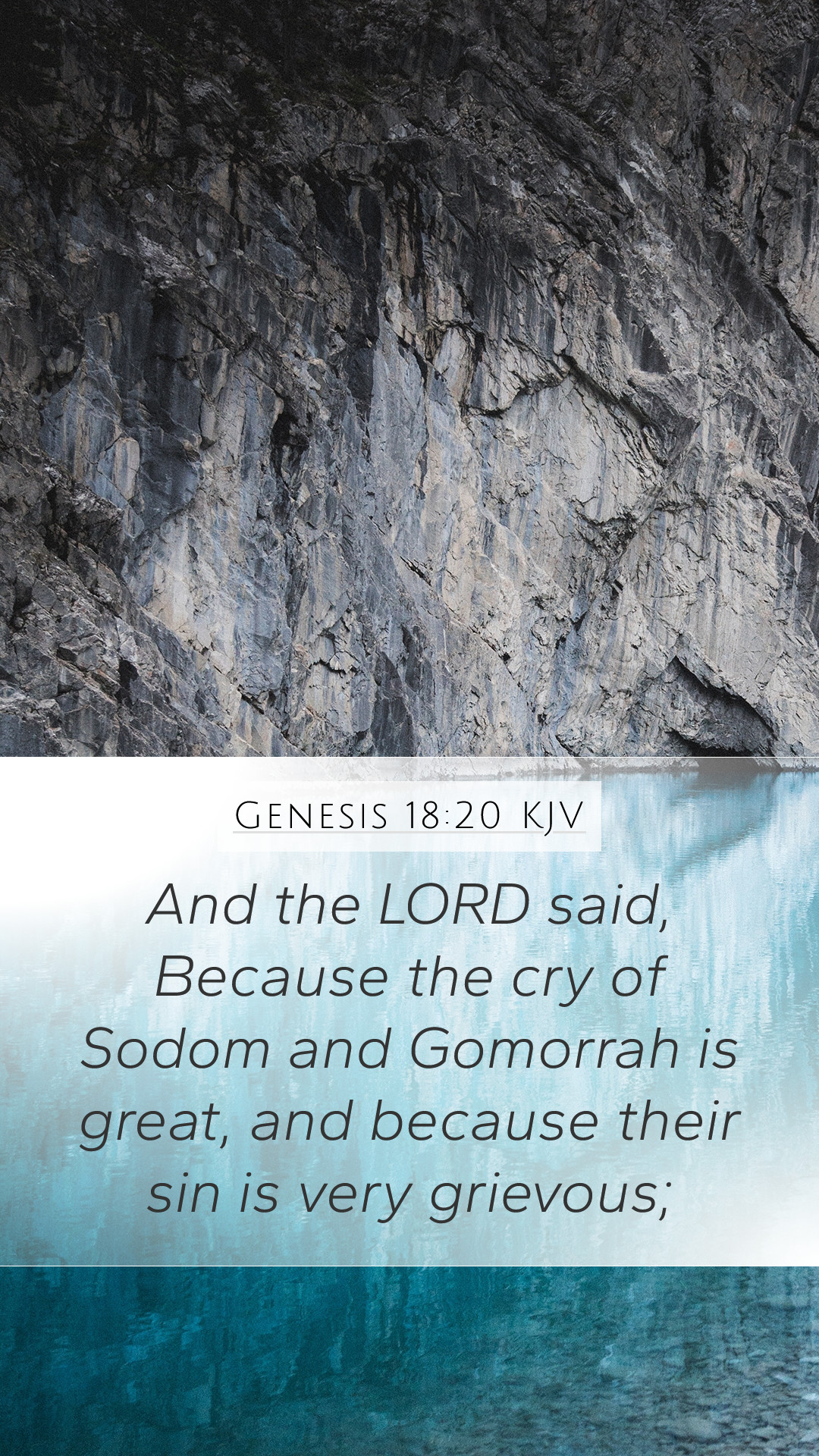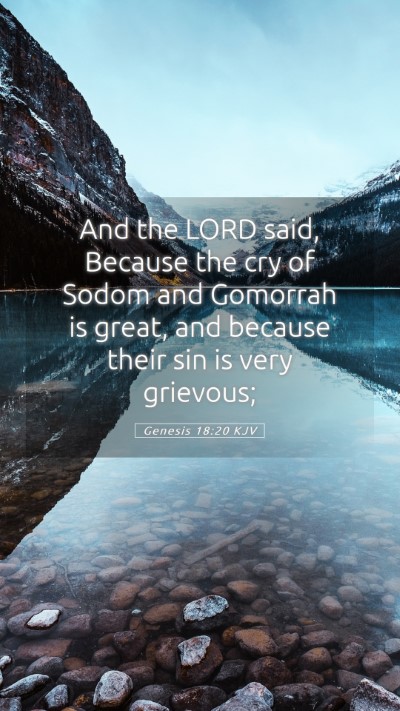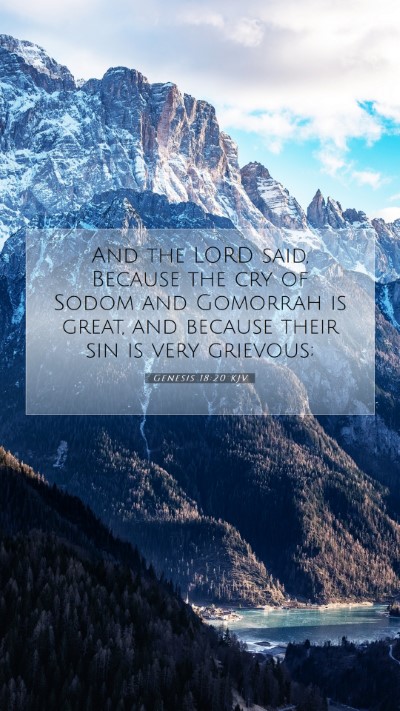Understanding Genesis 18:20 - A Comprehensive Commentary
Genesis 18:20 states: "And the LORD said, The cry of Sodom and Gomorrah is great, and because their sin is very grievous." This verse, part of the narrative of Abraham's intercession for Sodom, highlights God’s divine justice and the gravity of sin.
This commentary seeks to unpack the meaning of this verse through insights gathered from well-known public domain commentaries, including those by Matthew Henry, Albert Barnes, and Adam Clarke. The verse reflects God’s omniscience and His ultimate authority to judge the iniquity present in human cities.
Analysis of Key Themes
-
Divine Awareness of Sin:
The phrase "the cry of Sodom and Gomorrah is great" suggests that the sins of these cities have reached a climax so severe that they have become audible to God. Both Henry and Clarke emphasize that God's attention to human sinfulness is a constant theme throughout Scripture.
-
Severity of Sin:
The description "their sin is very grievous" underscores the seriousness with which God views sin. Barnes notes that grievous sin leads to divine judgment, illustrating the biblical principle of accountability before God.
-
The Role of Intercession:
Abraham’s subsequent actions show the importance of intercession. Even as God reveals His judgment, the narrative emphasizes the potential for mercy through righteous mediation. This connects to broader themes in Scripture about prayer and intercession, as noted in Henry’s commentary.
Historical and Theological Context
To fully grasp the significance of Genesis 18:20, one must consider the historical context of Sodom and Gomorrah. These cities were known for their extreme wickedness and immorality, which is elaborated in various biblical texts. Clarke provides a historical lens through which the actions and fate of these cities can be understood as a moral warning for future generations.
Key Interpretations from Public Domain Commentaries
Matthew Henry:
Henry emphasizes that the knowledge of God is all-encompassing, and He is ever aware of human acts. The verse states that even before the outcry of the cities reached God’s ears, He was fully cognizant of their transgressions.
Albert Barnes:
Barnes interprets this passage as a demonstration of God’s justice. The ‘cry’ serves as a metaphorical representation of the widespread injustice and corruption that reached a point of no return, prompting divine intervention.
Adam Clarke:
Clarke stresses the moral implications of the text, suggesting that it serves as a warning against sin. The mention of grievous sin reminds readers of the tangible consequences that accompany continued disobedience to God’s commandments.
Cross References
- Leviticus 18:22-30: A description of the sinful practices condemned by God.
- Isaiah 3:9: The pride of Sodom is highlighted as a reason for judgment.
- 2 Peter 2:7-8: References Lot's distress over the sinful deeds of Sodom.
Applying Genesis 18:20 to Daily Life
Understanding the weight of sin and its consequences is critical in today’s context. This verse encourages self-reflection and awareness of societal issues. As believers engage in Bible study groups and discussions on the Scriptures, this passage serves as a vital starting point for dialogues on morality, justice, and the importance of interceding for others.
The implications of this verse are profound: it calls for individual and collective repentance and the aspiration for righteousness in personal and communal lives.
Conclusion
Genesis 18:20 is more than an historical narrative; it serves as a powerful reminder of God's justice and the consequences of sin. Through careful Bible study insights and the wisdom of public commentaries, one can unlock deeper meanings and applications of this Scripture.
This exploration encourages believers to sustain an active engagement with Scripture for personal growth and moral clarity in an ever-complex world.


